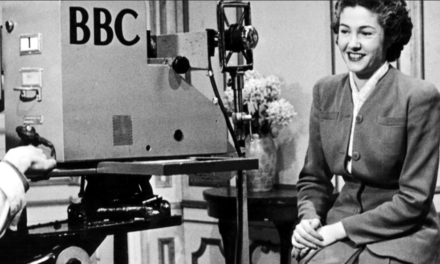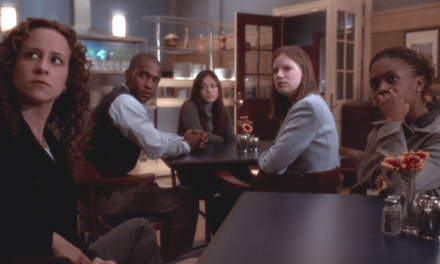he XXVIII Visible Evidence Conference will take place at the University of Gdansk between 10 and 14 August 2022. The event is conceived as an “in person” event, and we warmly invite everybody to make every effort physically to attend the sessions. As this year’s conference will focus on connections between history and documentary film making, we think it is particularly important that VE scholars and practitioners enjoy an embodied encounter with the city of Gdansk. However, there will be some opportunities to participate remotely and we will stream the whole event.
We encourage multiple forms of conference participation. Apart from traditional papers and presentations, we are interested in pre-constituted panels, as well as workshops and conversations (see below) that bring together scholars and practitioners. The conference also welcomes practice research contributions, such as video essays, short documentary films, and mixed media presentations.
The theme for the XXVIII Visible Evidence Conference is Images of History. The conference will be held in Gdansk, a city with a rich history that spans hundreds of years, from its commercial past, connected to the Hanseatic League, founded in 1356, through twentieth-century century political changes, to its present realities as a vibrant centre of tourism, higher education, and industry. One could argue that the city’s proud traditions of freedom can be traced to its respect for journeys of any kind as ways not only of exchanging goods but also ideas and practices. Gdansk is more than a diverse city: in the interwar period it had the political status of a “Free City” – an autonomous city-state under the protection of the League of Nations – and this name, although coined for other reasons, perfectly defines the spirit of the place. Gdansk strives to stand for liberty and open-mindedness, freedom of thought as well as freedom to be equal in political and economic contexts. The Second World War started here in Gdansk and the heroic battle of Westerplatte is still remembered and honoured with monuments and museums – and, of course, documentary films. Solidarity, the free trade union led by the pivotal figure of Lech Walesa, had a crucial role in overthrowing totalitarian Soviet rule. The Gdansk Shipyard was the birthplace of this crucial resistance movement, the heritage of which is now kept by the European Solidarity Centre. It is not only a museum of the movement but also home to archival collections. All participants will have an opportunity to visit it.
Visible Evidence’s theme this year aims to reflect on the connections between history, archives, and documentaries in the broadest sense of those terms. We, therefore, invite scholars from all disciplines to submit proposals so that our meeting can be truly trans-disciplinary. Our ambition is to make the event a space that will enable reformulations of some of the basic notions in documentary film studies and practice, relating to archives and the production of knowledge. What role can a documentary film/factual moving image play in culture and society? As part of the Visible Evidence movement of ‘truth seekers,’ do we go back to Bill Nichols’ famous statement from 1991 that the documentary should be akin to a ‘discourse of sobriety’ that is like science and history in its ambitions to focus on facts and to be objective and impartial? Or do we acknowledge that documentary can be fuelled by unconscious desire, as was first suggested by Elizabeth Cowie, Michael Renov and Agnieszka Piotrowska? Whilst Nichols himself has repeatedly tried to distance himself from his highly influential formulation, one could argue provocatively that, in this day and age, we do want documentary film to be objective and rely on facts more than emotions. But then, in this context, how do we consider autobiographical documentary texts or works which combine factual footage with fiction and animation? These are just a few of the questions this conference seeks to explore.
In documentary scholarship and practice, it is hard to imagine a historical documentary without an archive. Jacques Derrida in his Archive Fever (1985) points out that the concept of the archive is complicated and contradictory, holding onto memory but also in some ways trying to forget certain aspects of it. What do we forget and why? Who tells the story and how can a dominant narrative be subverted and why is it crucial to do so? And finally, is it possible at all to be a documentary filmmaker or a documentary film scholar and remain somehow neutral, or is it our ethical obligation to be political in everything we do? The great Polish literary scholar, the late Professor Maria Janion, demanded that the voices subdued and repressed by the dominant ruling culture be unearthed by academics so that those silenced for whatever reason can be heard again.
We would like to explore these ideas through a dialogue between theory and practice. We invite scholars, filmmakers, archivists, and activists to propose panels and presentations that address any aspect of documentary and non-fiction media. Special ideas and themes may include (but are in no way limited to):
- Documentary and archive: the role of home movies in creating documentaries; the ethics of using archive as ‘found footage’
- Contaminated source: the ethics of work with documentary propaganda materials
- Documentary and Fiction: methods and concepts of merging drama, archival footage, and interviews in order to present the ‘unrepresentable’
- Documentary and Conflict: images of the past in an age of rising fascism, post- and neo-colonialism, transnational military interventions, and global humanitarianism
- Race, Gender and Sexuality: How can documentary resurrect non-hegemonic pasts and presents and open up spaces outside a white, heteronormative, and patriarchal matrix?
- Found footage as a film genre: tradition and prospects
- Bolesław Matuszewski’s vision of film as a nouvelle source de l’histoire nowadays
- Documentary film and historical education
- Historical documentary and political praxis
- Performing history: mise-en-scène in historical documentaries
- Decisive historical moments and documentary films
- Impact of the present on documentary (re)presentation of history
- Global and local histories
- Human stories: a documentary portrait genre
- Documentary and the autobiographical mode
- Small histories: everyday life in historical documentaries
- The rhetoric of historical documentary
Guidelines for Submission:
- Panel proposal:
Panels will consist of three presentations of no more than 15 minutes each (online presenters might consider even shorter presentations) with a ten-minute response from the panellists’ chosen respondent. Panel proposals require: a title; a 300-word description of the panel itself; five keywords that identify the panel’s focus; a 250-word abstract for each paper, or for filmmakers a 200-word abstract and 20 minutes of materials (via link); a 100-word professional note for each participant; and 5 bibliographic entries for the entire panel.
Submit panel proposals here.
- Workshop proposal:
The emphasis of the workshop is on an open and unstructured exchange of ideas and techniques among all workshop participants. Workshops will consist of five or six opening statements that amount to 40 minutes in total (5-7 minutes for each statement), with the remaining time dedicated to discussion. Workshop proposals require: a title; a 300-word description of the workshop; five keywords that identify the workshop’s focus; a 50-word description of each contribution (filmmakers are welcome to add 20 minutes of materials via link); a 100-word professional note for each participant; and 5 bibliographic entries for the entire workshop.
Submit workshop proposals here.
- Conversation proposal:
We continue with the format introduced for the previous VE conference. This consists of a 45-minute conversation between three participants, reliant on cross-disciplinary exchanges between artists and scholars around shared investigations of concepts, sites, sensibilities, and histories. The conversation will be based on work (screeners or papers) circulated in advance. Presenters will be asked to send a paper of 1,500 words MAXIMUM, and artists will be asked to send excerpts or a complete work at least two weeks before the conference opening. The conversation itself will be based on pre-circulated essays and visual materials. Conversation proposals require: a title; a 200-word description of the general theme; five keywords that identify the conversation’s focus; a 200-word abstract for each paper or film; for filmmakers 20 minutes of materials (via link); and a 100-word professional note for each participant.
Submit conversation proposals here.
- Presentation proposal (open call):
Individual presentation proposals can be submitted through the open call. Individual presentations will be allotted 15 minutes for each presenter. Accepted presentations will be programmed into panels with other individual presentation submissions. Individual presentation proposals require: a title; five keywords that identify the presentation’s focus; a 300-word abstract for papers; a 200 word abstract; 20 minutes of screening materials (via link) for practitioners; a 100-word professional note; and five bibliographic entries.
Submit individual paper proposals here.
- A note to filmmakers and practitioners:
To stress the interconnectedness of theory and practice, filmmakers’ and practitioners’ talks will be integrated into all formats alongside paper presentations. Filmmakers are welcome to send their materials according to the above instructions for each one of the formats in which they can present excerpts of their work and contextualize it. In addition, VE Twenty-Eight will open a Vimeo channel on which selected works will be screened. Practitioner presenters can also add a link to their work to the online program.
Conversations will be allotted forty-five minutes panels and workshops will be allotted one hour and thirty minutes.
Deadline:
All proposals are due by 28 February 2022
Contact:
Website: https://2022.visibleevidence.org/
Conference fees:
- Conference fee: 100 Euro
- Early Bird Registration: 85 Euro
- Fee for students, Phd students and unafilliated participants: 40 Euro





